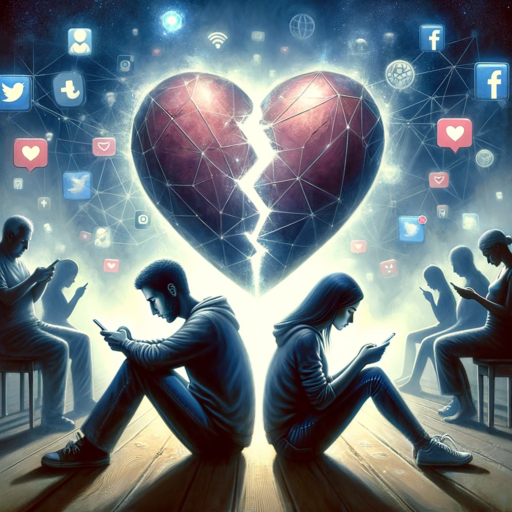“It was the time when they loved each other best, without hurry or excess, when both were most
conscious of and grateful for their incredible victories over adversity. Life would still present them
with other mortal trails, of course, but that no longer mattered: they were on the other shore.”
― Gabriel García Márquez, Love in the Time of Cholera
The Impact of “Existential Numbing” in a Digitally-Dominated World
In a world increasingly influenced by an “existential anesthetic”, we have lost our sense of time, place, and the essence of life itself! This numbness affects our eating habits, relationships, and even our understanding of ourselves and our identities. In an era where everything is accessible with minimal effort, the inherent value of many things has diminished. It is human nature, dear reader! To place greater value on things that require significant effort to obtain because we fear losing them, knowing the arduous journey it took to acquire them. But when something can be obtained with just a click, what will make you appreciate its value? Just as easily as something comes, it can go—one click to follow, add a friend, or send a message on social media to an interesting account, all with no physical effort. Everything has become easily
accessible.
Instant Connectivity
Before the advent of the internet, communication involved handwritten letters or real-life
meetings—these were the only guarantees of staying in touch with loved ones. In today’s globalized
world, instant communication via social media or dating apps is easier than drinking a glass of water!
With a single click, you can see and hear your loved one. While this may seem wonderful as it bridges
distances, in reality, it results in shallow interactions and weakens the bonds we share with others.
Without tone, body language, and the energy and power of words received directly, we are more
susceptible to misunderstandings and misinterpretations.
How can an emoji convey a complex human feeling that even science has yet to fully explain? How
can a GIF represent the intricate interactions of oxytocin, dopamine, serotonin, and beta-endorphin?
How can a simple “block” click express the increased heart rate, blood flow to the hands, sweating,
and adrenal gland secretion of catecholamines, epinephrine, norepinephrine, and cortisol during
anger? A simple click cannot capture these psychophysiological reactions and the complex processes
our brain undergoes to make us experience all these emotions.
Social Media and the Dynamics of Relationships
People tend to share the bright side of their lives on social media—places they visit, their daily
routines, and the “luxurious” lifestyles they lead. Even when sharing negative aspects, it is often for
the sake of “bad buzz.” Some couples showcase the romantic side of their lives, making viewers
prone to comparisons, feelings of inadequacy, and loss of self-esteem. Even though what is
shown is not necessarily indicative of the influencers’ real lives, these comparisons are a major cause
of problems for many couples today. Everyone now seeks fame, money, and artificial romance!
Relationships in the age of technology are often linked to highly complex sensory and psychological
responses. For instance, the expectation of instant responses in digital communications (“last seen,”
“read”) creates pressure on the recipient and anxiety for the sender. Not everyone understands that
an online status means the phone is connected to the internet, not the person to the phone!
Moreover, spending extended time in front of screens reduces the quality of personal interactions,
causes mental distraction, and increases symptoms of anxiety in individuals with ADHD and chronic
anxiety.
Social media also impacts the quality of family relationships, creating a significant gap between
parents and their children, leading to feelings of disconnection and lack of belonging. Individuals now
live more in the virtual world than in reality. Embracing technology requires great awareness to
balance digital and real life. You cannot date someone just ten minutes away from you via video calls
or enjoy a family gathering where everyone is engrossed in their phones, oblivious to the fact that
their real lives are slipping away. I guess the reason why our grandparents lasted 60/70/80 years together, was because they didn’t have 5000 friends! in the same mood as “followers” giving opinions, advice, and personal messages. Today, when a relationship has problems, just comfort ourselves with the fact that we have “more options” and more people we like. Having this fake feeling of security, we believe in “pleasure for many” No one is struggling anymore to hold something! Everything is replaced! There are studies¹ that show that a serious relationship these days due to the abuse of technology and information has a maximum duration of only 2-3 years, because we know how easy and replacement is normal, without understanding that love is the only thing worth living.
Wake up it’s a trap!

